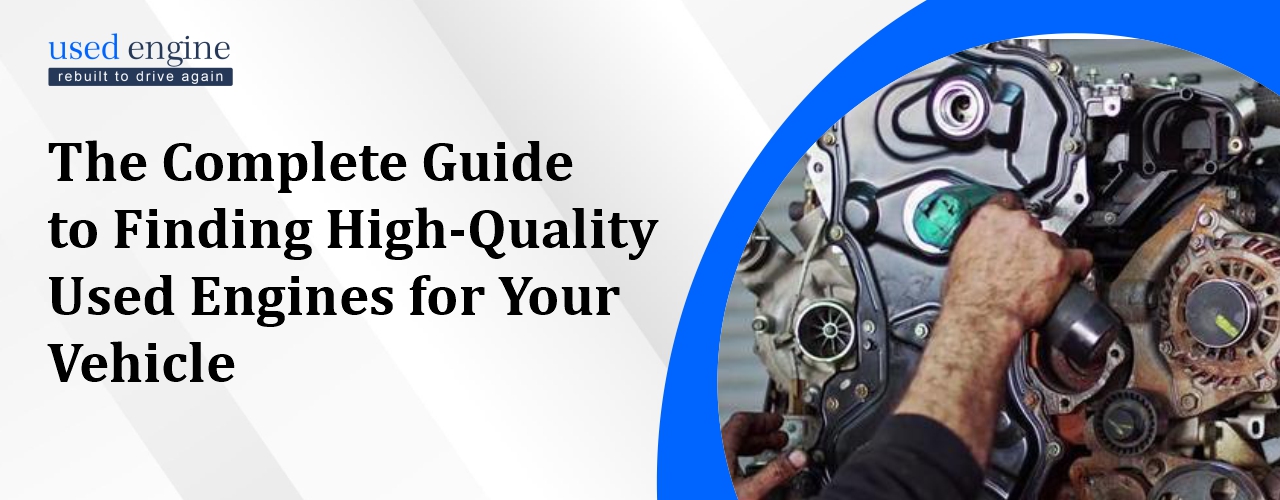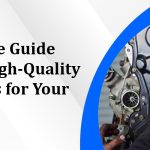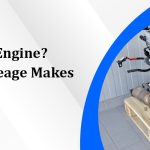
Buying used engines is not a small decision. It takes patience and careful checking. Many vehicle owners do this to save money. A quality used engine can give your car a second life. But not every engine out there is worth your money. Some are worn out, some have hidden issues. You must know how to separate the good ones from the bad.
This guide is provided by usedengine.forsale. It will help you understand how to choose a reliable used engines, no tricks, no fluff, just real help.
1. Know Why You Need a Used Engine
If your car engine has failed, replacing it with a used engine is a practical step. A brand-new engine costs a lot. It may not be worth it for an older vehicle. A used engine can be just as good if it is clean and working well. You also save on repair bills. Most used engines come from vehicles that were not in engine-related accidents. This means the engine may still have a lot of life left.
2. Check the Source Before You Buy
You need to know where the used engines is coming from. Always pick a trusted supplier or salvage yard. Avoid buying from places that do not offer full engine history. If they cannot give you the mileage or year of the engine, walk away. Look for a supplier that tests the engines before selling. Ask if they remove fluids. Ask if they inspect for cracks. A responsible seller will always clean, inspect, and label each unit before putting it on sale.
3. Match the Engine to Your Vehicle
Engines are not one-size-fits-all. Ensure that the used engines match your make, model, and year. Even small differences in engine codes can create major problems during installation. Do not guess. Do not assume. Use the VIN of your vehicle to check compatibility. A small mistake here can cost you more in labor and time.
4. Inspect for Wear and Damage
Even used engines must meet basic quality checks. Look at the exterior. There should be no oil leaks. The engine should be clean and free of rust. Spin the crankshaft manually if possible. Check for smooth movement. Inspect the spark plugs and look at the oil pan. If the oil looks milky, it may be a sign of coolant leak. If the engine comes with a timing belt, check its condition. Even though you are buying used, the engine should not be on its last leg.
5. Ask for Compression Test Results
A good supplier should have compression test reports. This shows how much pressure each cylinder is holding. Low or uneven numbers mean problems. You want strong, even numbers across all cylinders. Compression testing is a clear way to judge the health of a used engine. If they do not offer this data, it is better to avoid that unit.
6. Understand the Mileage and Age
Mileage matters when buying a used engine. Lower mileage engines usually last longer. But age also plays a role. An engine that sat unused for many years may have dried seals. On the other hand, a newer engine with slightly higher mileage but good care can be better. You need to balance both. Ask for maintenance records if available. That will help you know how well the previous owner treated the engine.
7. Check the Warranty and Return Policy
Used engines should always come with some form of warranty. Even 30 days is better than nothing. This shows that the seller is confident in the product. Read the return policy as well. A proper seller will not trap you with fine print. Look for clear terms. No hidden conditions.
8. Factor in Shipping and Installation
Buying a used engine is not just about the cost of the engine. Shipping can add a big amount. So can labor costs. Make sure you count the full cost before you place the order. If you plan to install it yourself, check if the engine comes with all the needed parts. If a mechanic is doing it, confirm their fees and availability.
9. Avoid Buying Based on Price Alone
Low cost does not mean high value. Do not go for the cheapest used engines you find. If it sounds too cheap, there is usually a reason. It may be worn out. It may be untested. Paying a little more for a verified engine can save you money in the long run. You are not just buying metal. You are buying function.
10. Stick to Verified Online Platforms
Online shopping for used engines is common now. But not every site is honest. Choose websites that specialize in used engines sales. Look for reviews. Check their contact details. Make sure they allow customer support before and after the sale. A good site will let you filter by brand, model, mileage, and engine type.
11. Install with Care
Once you receive the engine, it needs a careful installation. Replace all gaskets. Flush the cooling system. Use fresh oil. Do not reuse old spark plugs. Follow torque specs from the manual. A good engine can still fail if it is installed poorly. Work with someone who has real experience.
Conclusion
Look for strong reviews and real photos. Ask for proof when needed. Avoid shady sellers and avoid direct payments with no backup. One of such used engine sellers is Used Engine For Sale. They have been in the used auto part market for quite some time now. Their customer reviews and service are commendable. One can visit there store at usedengine.forsale for a closer look at their vast stock of used engines.
Finding a high-quality used engine takes time. It is not a one-click process. You need to check the source. You need to match specs. You need to inspect details. But it is worth the effort. A used engine can save your car and your money. Follow the basics. Avoid shortcuts. Use verified sources. Think long-term. That is the smart way to shop for a used engines.


 The Complete Guide to Finding High-Quality Used Engines for Your Vehicle
The Complete Guide to Finding High-Quality Used Engines for Your Vehicle Ford Escape Engine Codes Explained: What to Know Before Buying Used
Ford Escape Engine Codes Explained: What to Know Before Buying Used Buying a Used Engine? How Mileage Makes a Difference
Buying a Used Engine? How Mileage Makes a Difference Best Used Toyota Engines for Sale in California
Best Used Toyota Engines for Sale in California How to Choose the Best Used Acura Engine in 2025
How to Choose the Best Used Acura Engine in 2025